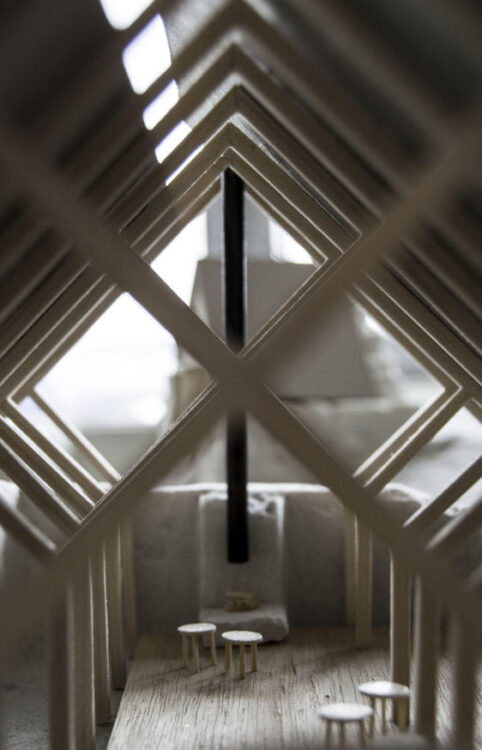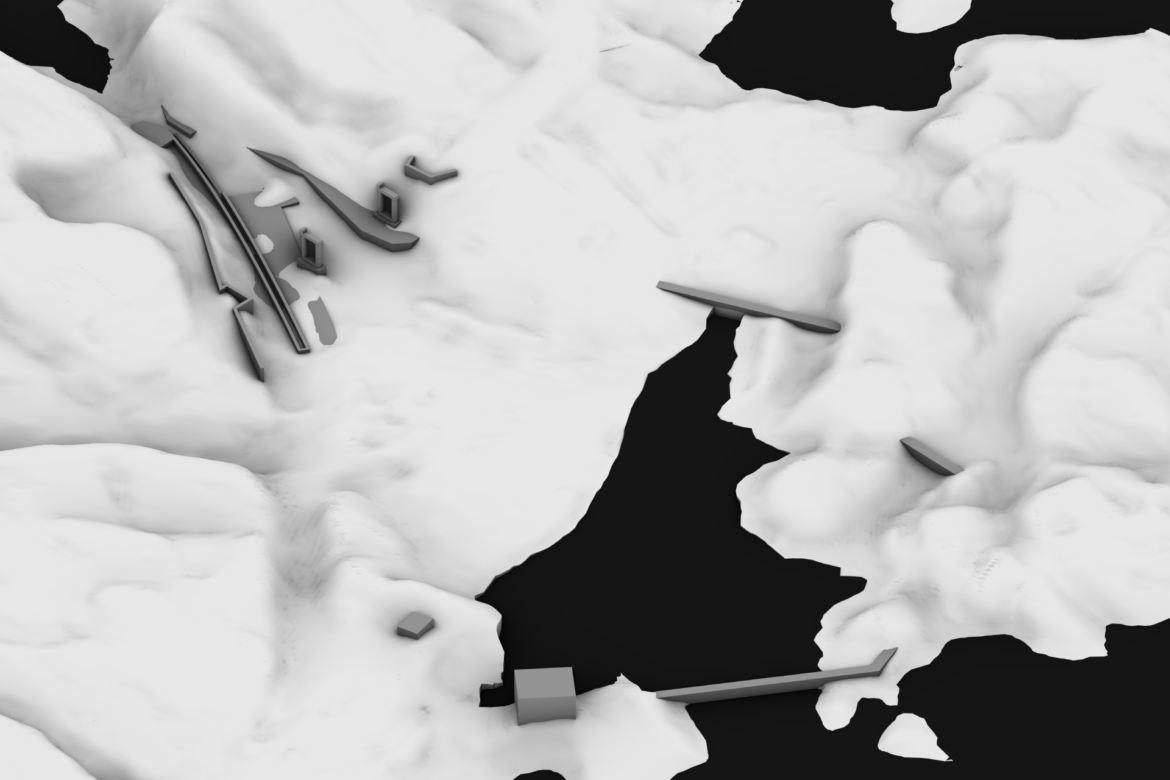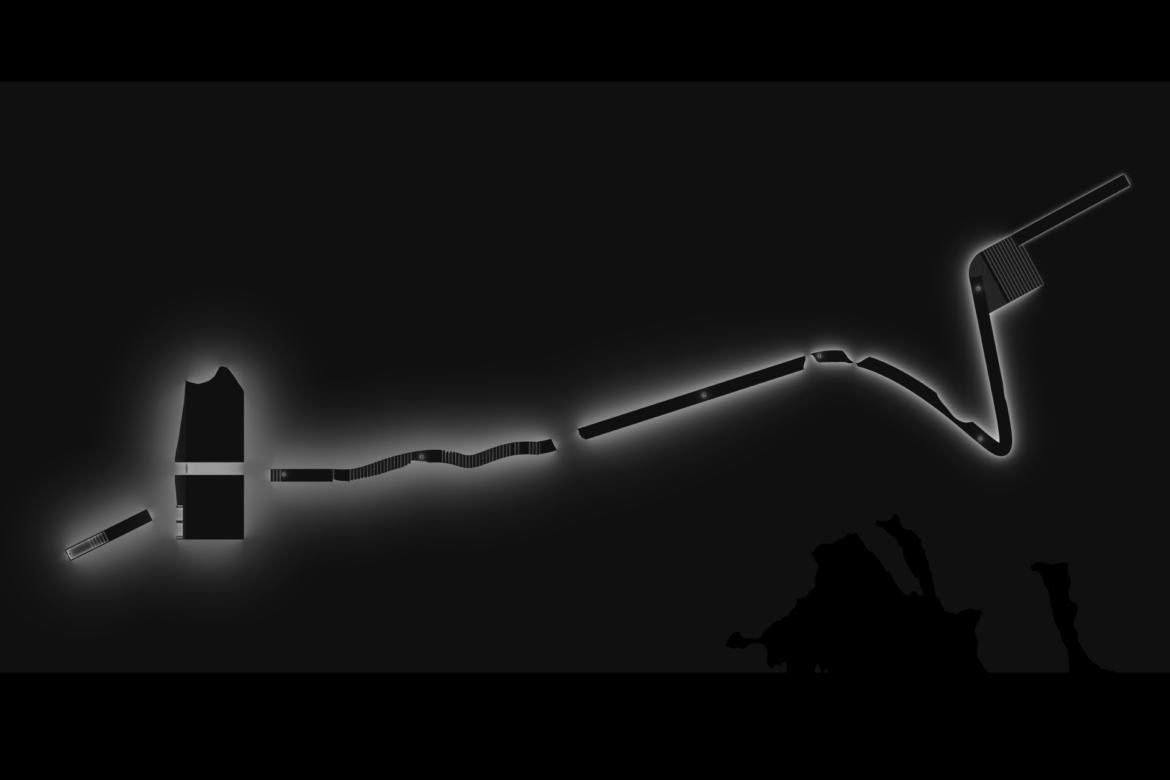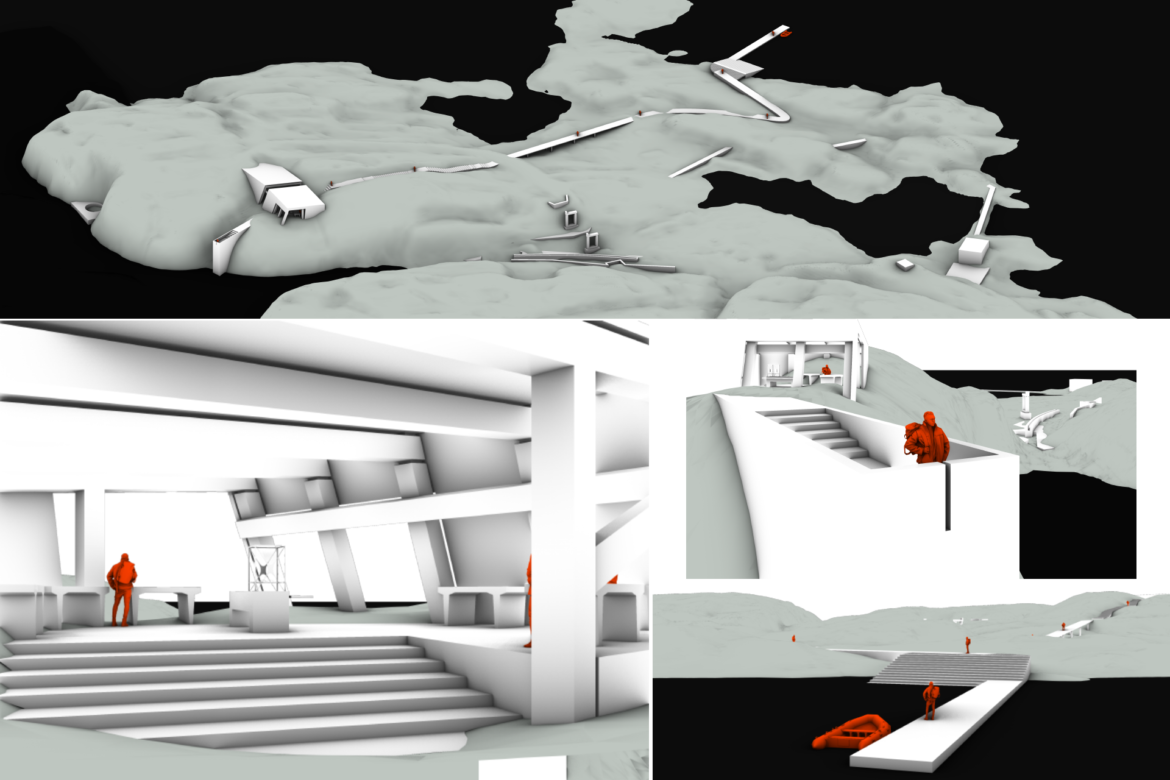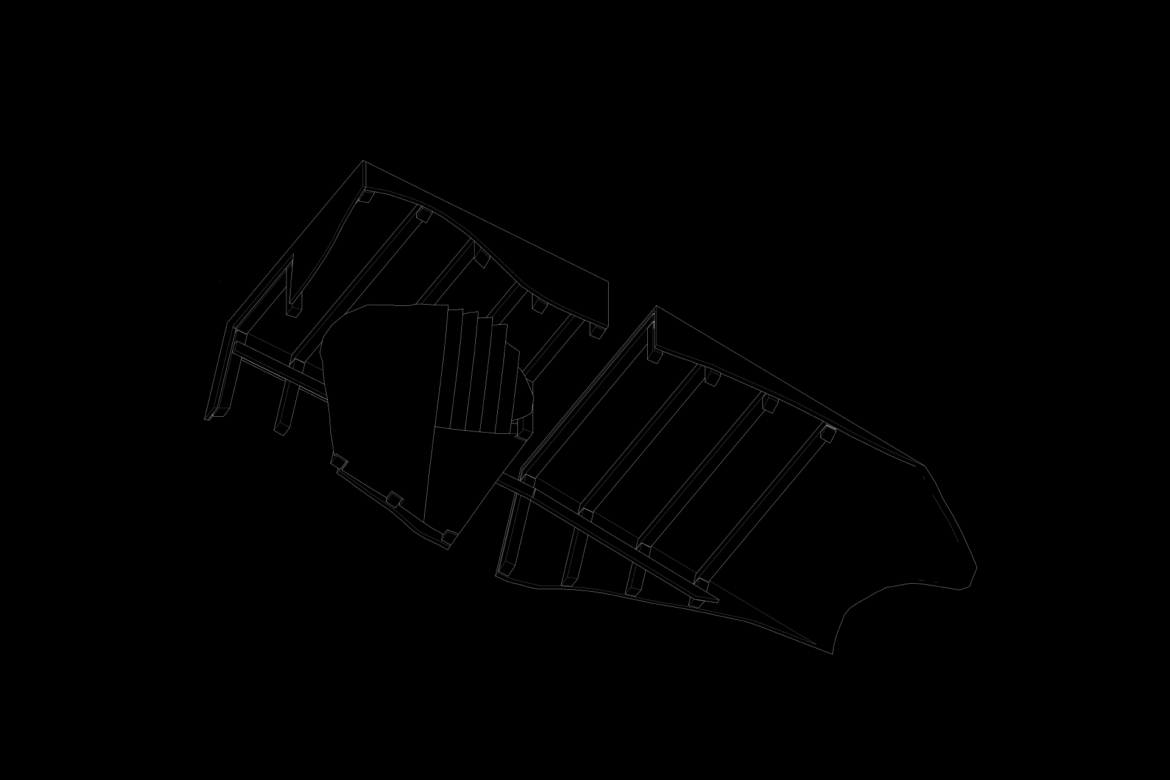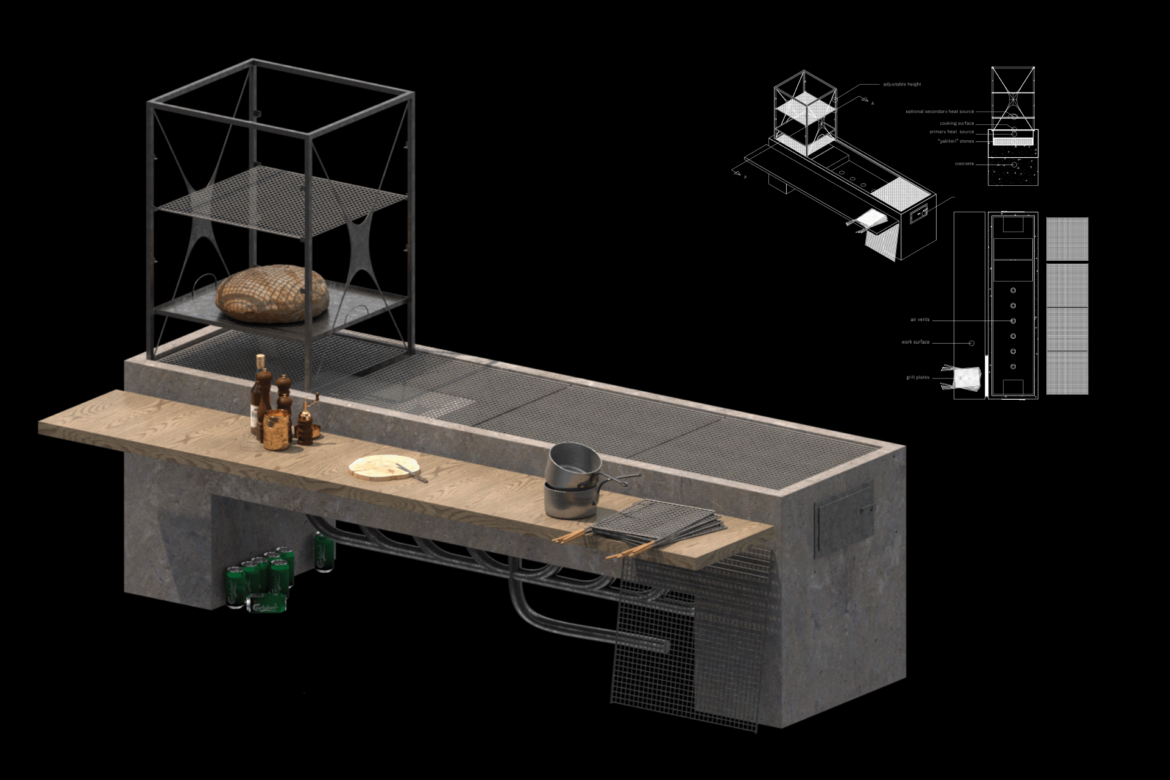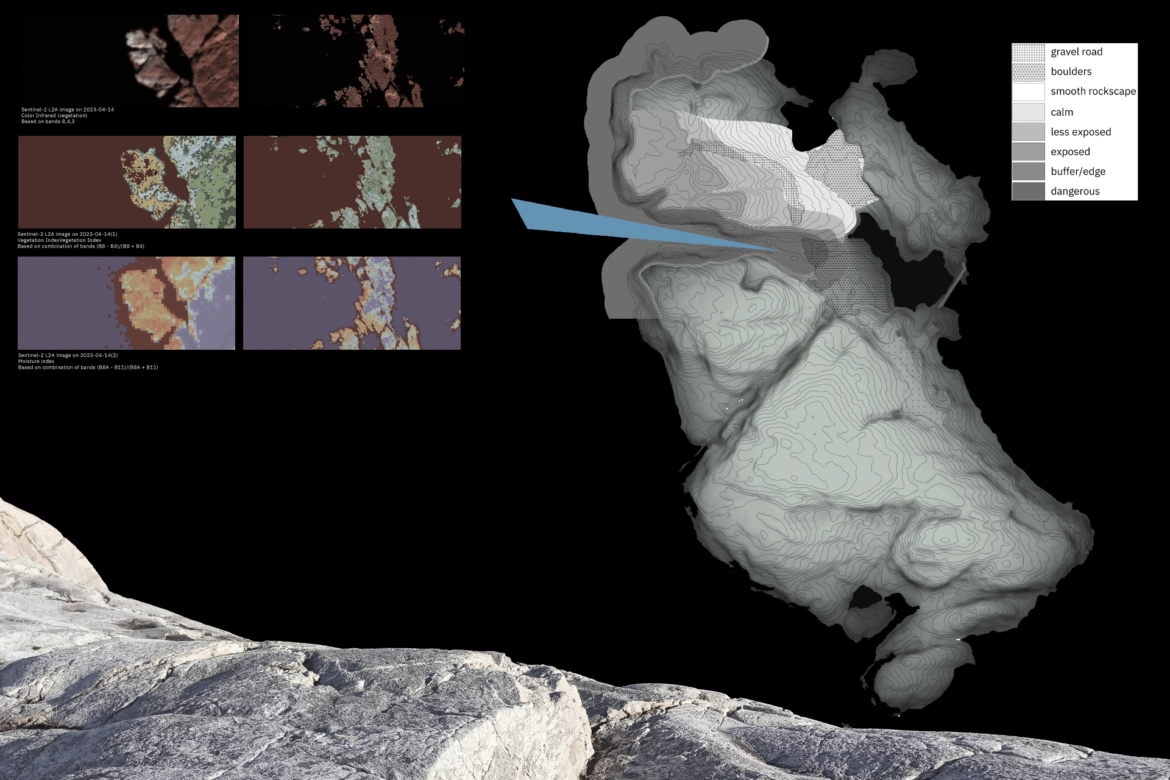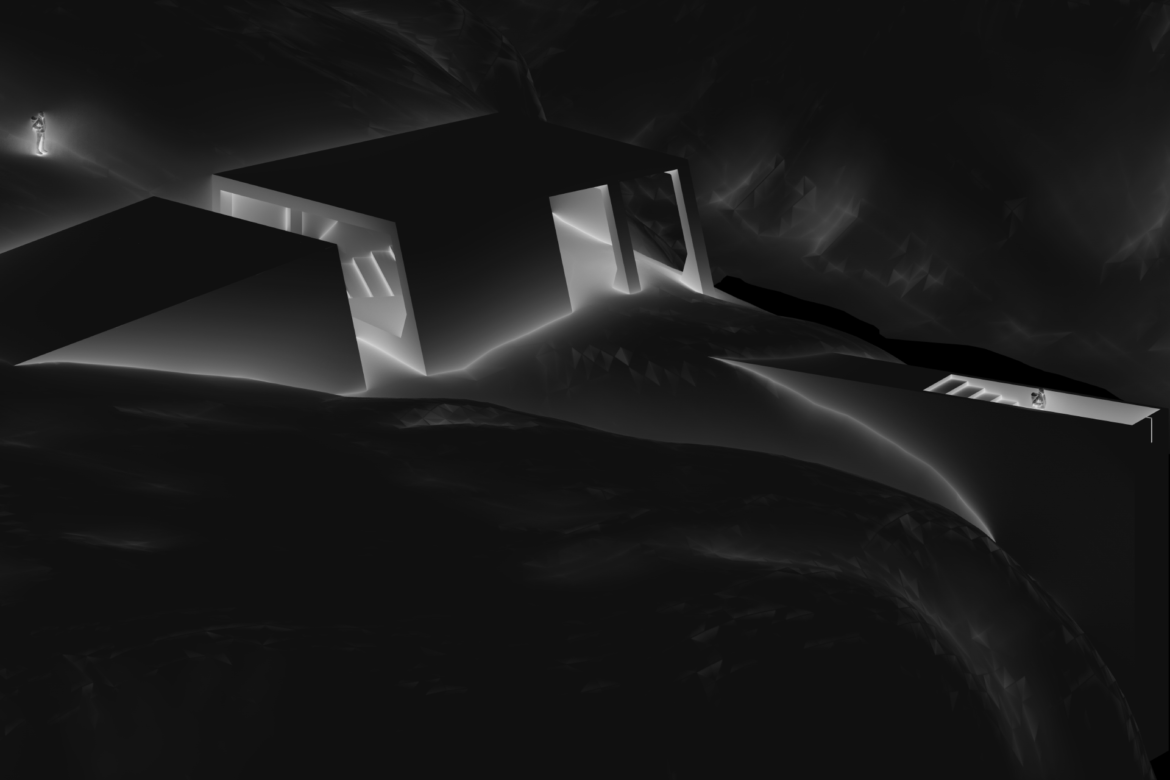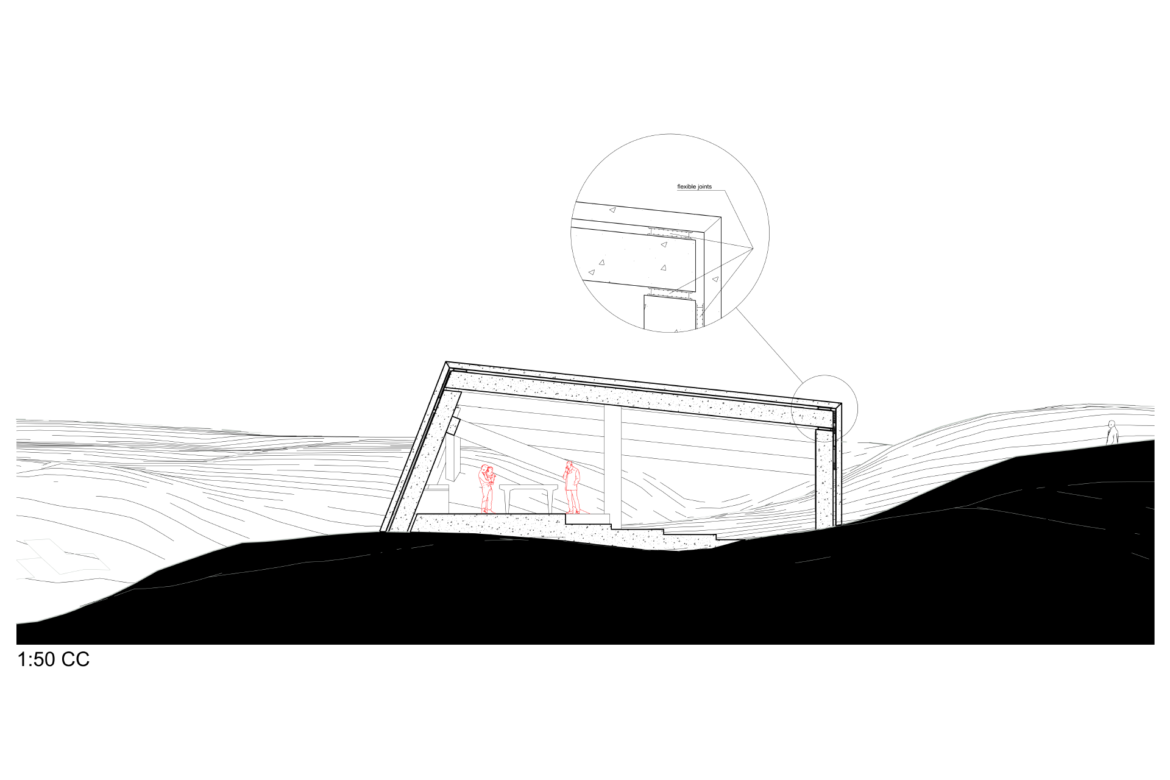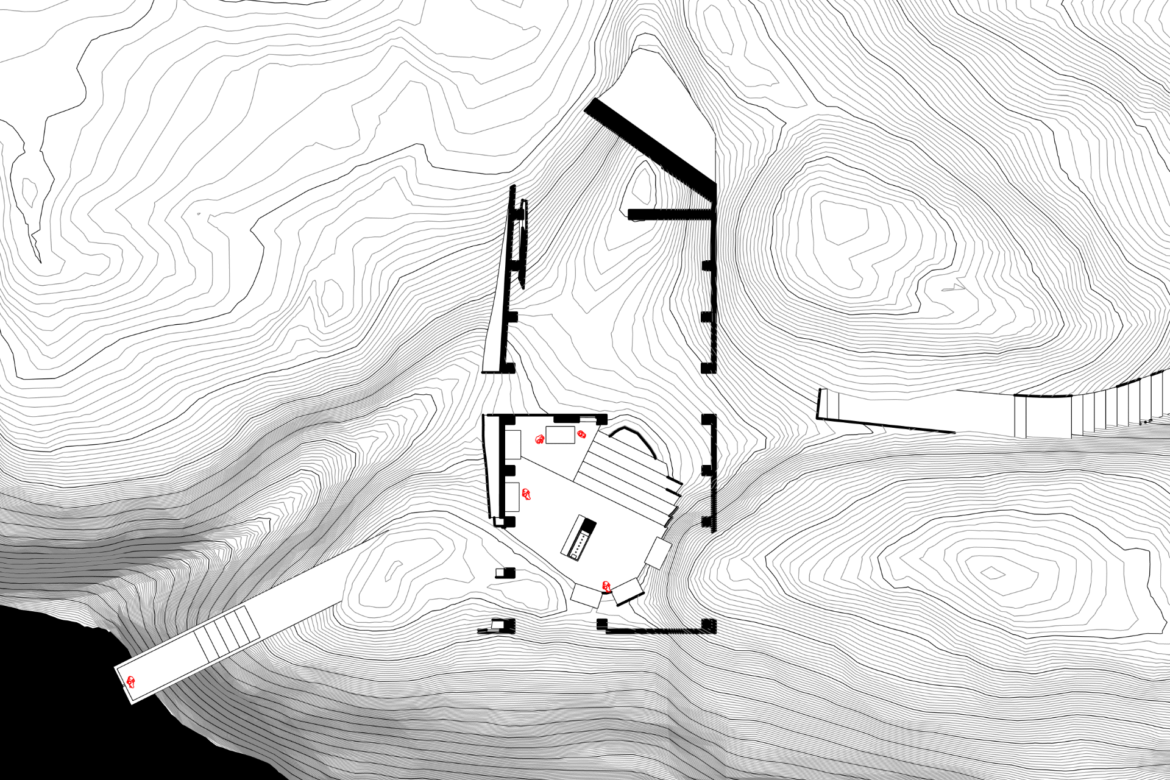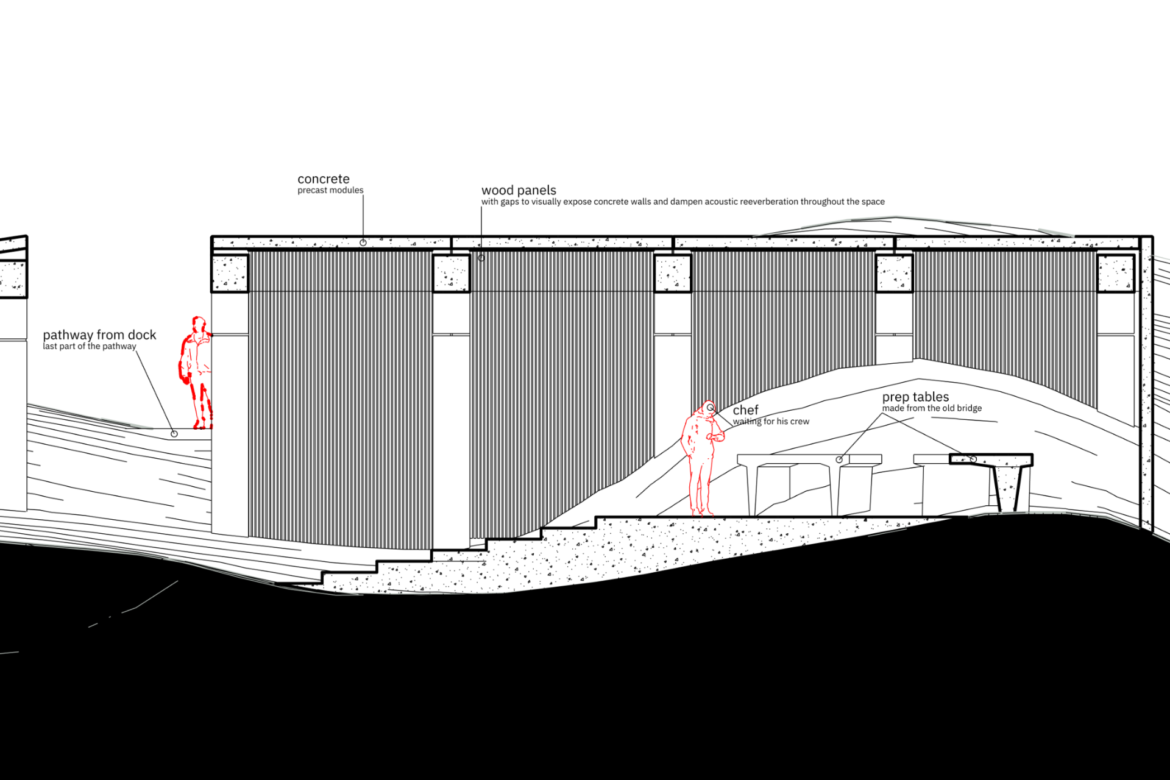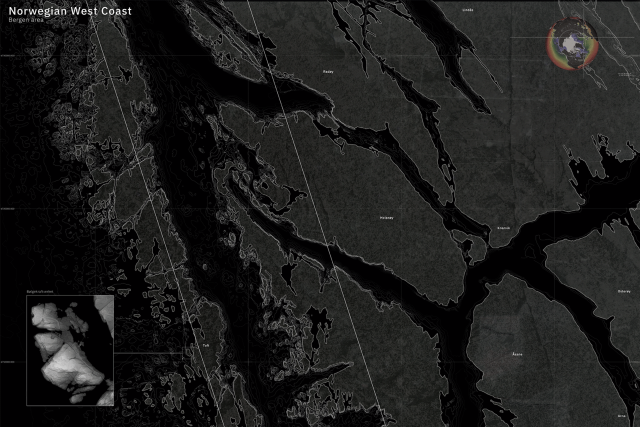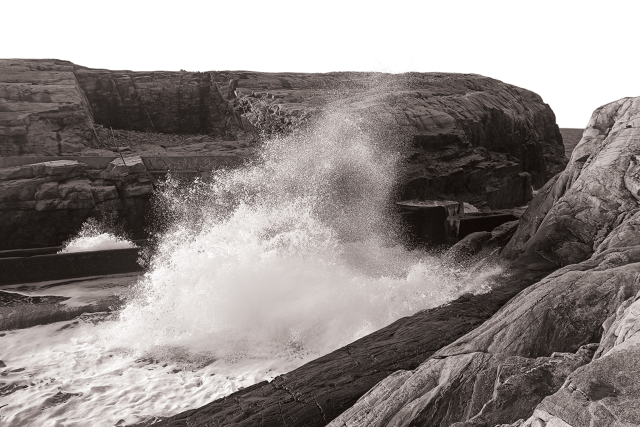What
This project challenges the mindset of the older generations when it comes to what seafood can be, the market with what is available and edible and yourself by giving you an opportunity to learn how to engage with delicate ingredients.
Where
Bølgekraftverket at Toft, in Øygarden, was built to harness the power of the North Sea, but failed twice to withstand the raw force of the ocean. The site inspires reverence for the natural force of the North Sea and shows us how we might use its rightful spoils. Declining fish stocks is not easy to spot with the naked eye when gazing at the horizon so using the ruins of a failed wave power plant helps bring in the seriousness of the situation. In this almost post-apocalyptic landscape we are literally on the edge of what we perceive as the relative safety of human civilization. On the wrong side of the ridge that protected the earliest settlements from the north sea. In this place we cook our dinner.
How
A safe harbour that welcomes you to dry land on the protected side of the island. Then a path that takes you through, over and across the rugged landscape that is scattered with the remains of the old power plant. Over the ridge you are greeted by a fortified gapahuk made to withstand the last embrace of the waves as they hit solid land. The construction and tectonics are inspired by what remains in place today after the failed power plant.
Enjoy your meal.
Other tutors/consultants: Tord Bø Bakke andFrode F. Jacobsen (social anthropology), Kim Christensen and Andre Fontes (TTA, engineering), Nancy Couling (sustainability), Vibeke Jensen (1:1), Pavlina Lucas (writing as a design tool)
